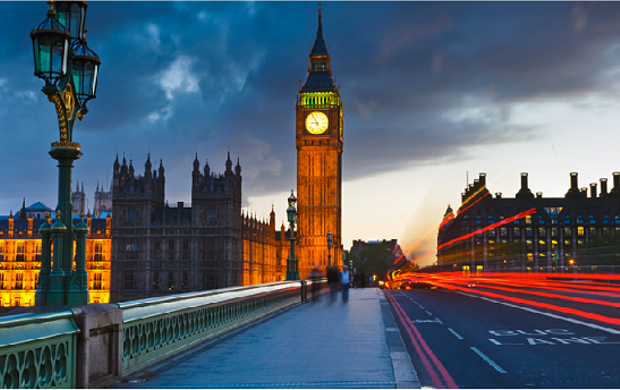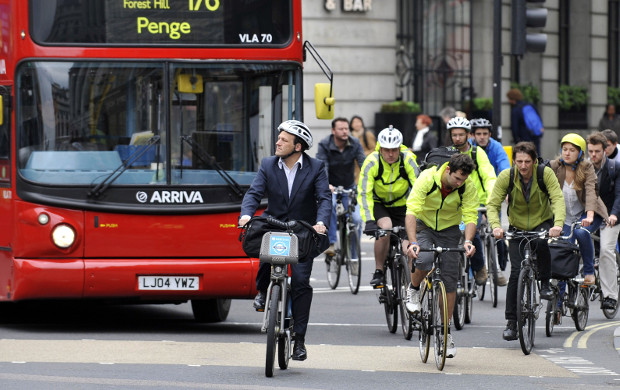London’s seat at the world’s economic top table should be in no doubt. Home to more than 250 banks, it is a city with a global outlook and handles more than a third of all foreign exchange across the world on a daily basis—making it the physical home for the massive flow of offline and online market trading. Estate agent Savills once estimated that London’s housing stock is worth the same as Brazil’s annual GDP—while the property in the top ten boroughs in the capital city is said to be worth more than the whole housing market in Northern Ireland, Scotland and Wales put together.
As a city that generates more than a fifth of the nation’s GDP—despite being home to an eighth of the population—it is, naturally, going to be a magnet for graduates. Smart people with good degrees under their arm regularly head to the capital in search of the best jobs to make the most of their skills and talents. About a quarter of new graduates from UK universities in 2014 and 2015 were working in London within six months of finishing their studies—a figure that rises to 38 per cent if you just focus on those with good degrees from Russell Group universities and 52 per cent when you look at Oxbridge graduates.
But, while moving to London for work might make sense from a career point of view, it isn’t necessarily easy. Life in London is notoriously expensive—so it pays to understand how you can overcome the cost of living hurdles ahead of you before you go and pursue your dream career in the capital.
Finding somewhere to live
Perhaps the chief concern for anyone heading to London is the cost of finding somewhere to live. House prices might have stalled a little but the average value of a property in London is hovering just below £500,000. While that might make you turn to the rental market, the average price of more than £1,500 a month means that tenancies don’t come cheap either.
So, what can you do? Well, first things first, you have to make a smart choice about where you look for somewhere to live. This guide from MoveHub demonstrates some of the more affordable boroughs in which you might find a place below the averages quoted above. It’s likely that you’ll have to commute for between half an hour and an hour each morning, so don’t be put off by looking for properties further afield—just be sure to check out the bus/tube connections when you do your research.
You also need to be prepared to dedicate a lot of time and effort. Arrange a lot of viewings, draw up a list of features you want from your new home and be prepared to pounce on a property that fits the criteria quickly. Spend some time walking around your ideal location too—you might find ‘for rent’ properties that haven’t been listed online. Things move fast in London, as you’ll soon come to realise, and it’s fair to say you might not have the same wriggle room you might have in other towns and cities across the UK.
Sharing a home is pretty common in London, due to the cost involved. Don’t rule this out as you might well find a great property this way. Check out Spareroom and EasyRoommate to look for listings.
Spend less on transport
If you’ve visited London as a tourist then you’ll probably be well aware of the merits of an Oyster card and this is essential if you want to use the capital’s busy public transport system. You could get the benefits of an annual ticket while still paying monthly through the Commuter Club.
However, consider alternatives to public transport if you wish to cut the cost of this travel. Many people choose to cycle across the city to work. While this might take some getting used to, especially if you’re not used to the hustle and bustle of busy city roads, it can make life a lot cheaper.
Don’t rule out walking either. Most tourists head straight down for the Tube out of habit and don’t appreciate that some journeys are quick and easy to make on foot. You might not be able to walk your morning commute, but you could cut down the cost of shopping or leisure trips by exploring the city on foot.
Things to do
You’ll want to experience the benefits of London life so that you can truly feel at home. Yet, with drinks and food quite expensive you need to be savvy and look around for the budget-friendly ways to have fun in London.
The good news is that there’s much to do for free—whether it’s entry to the British Museum and Natural History Museum, exploring the city’s parks or soaking in the skyline along the Thames. We’d recommend looking at this list of 47 budget ideas and building your own London bucket list that won’t break the bank while you find your feet as a new Londoner.
If your career is calling you to London then take the advice above so that you can get somewhere to live, find your way around the city and have some fun as you learn to love your new home.










